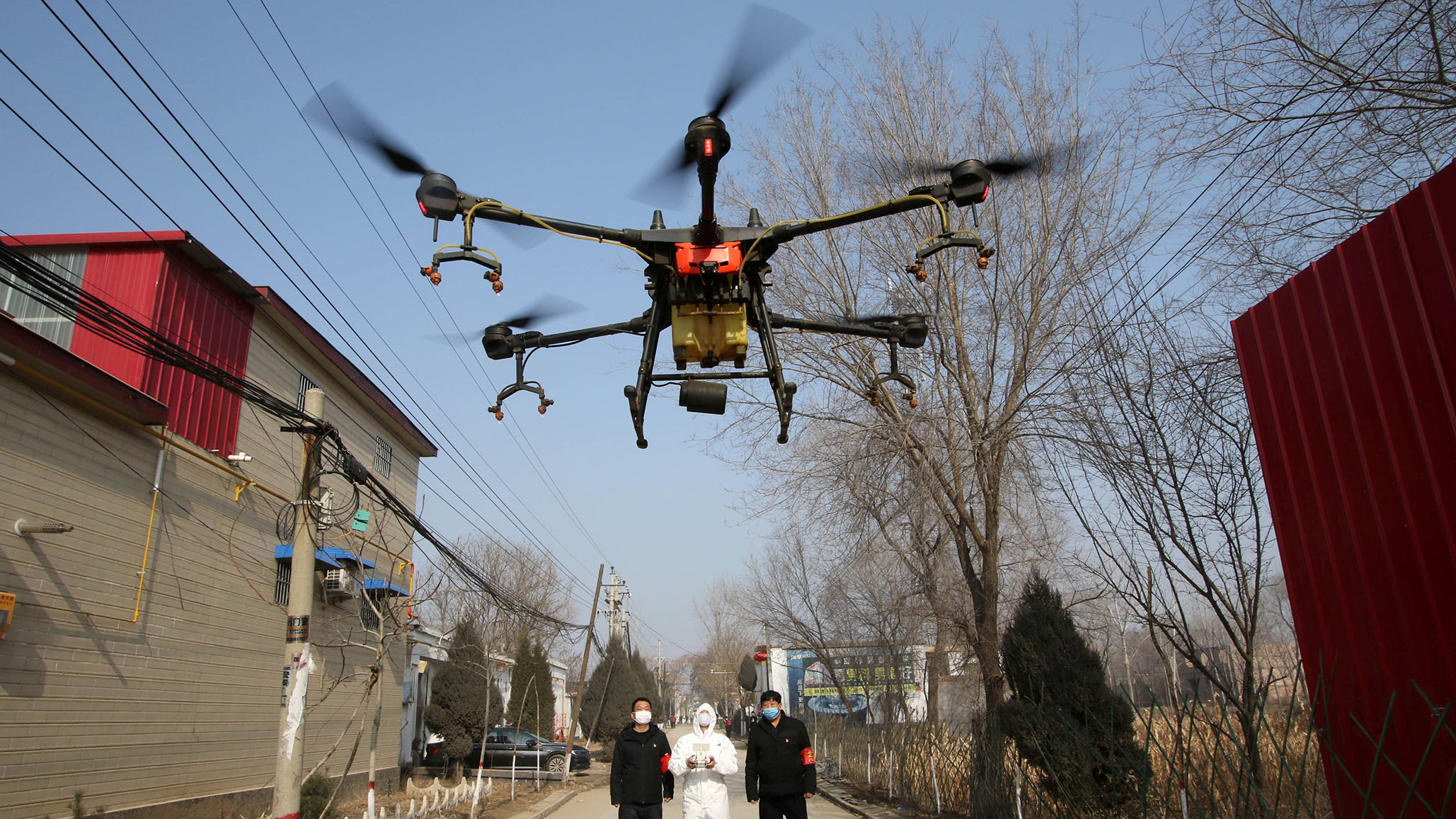


NRPLUS MEMBER ARTICLE I magine a swarm of drones hovering over American cities — buildings, streets, parks, and, not least, infrastructure — with cameras recording data that’s streamed to unknown servers. It’s the kind of sci-fi scene that Representatives Dave Joyce (R., Ohio) and Jake Auchincloss (D., Mass.) want to ensure does not become reality.
Their proposed bill, the Securing Our Airspace from Reconnaissance (SOAR) Act, aims to cut down on the threat of foreign surveillance by prohibiting the use of federal funds to purchase or operate drones from foreign entities.
The SOAR Act outlines a multifaceted approach to addressing potential threats posed by foreign-made drones. If enacted, it would prohibit the use of taxpayer dollars for acquiring drones from entities connected to countries deemed hostile, including our primary geopolitical competitor, China. Government officials who seek exceptions to this ban would have to notify Congress and request a waiver; if approved, their waiver would be subject to an annual review. The bill would also empower the secretary of defense to boost collaboration with private-sector partners in the production of secure drones, fostering a robust domestic drone industry.
In a statement endorsing the legislation, FDD Action, a nonpartisan organization that advocates policies that promote U.S. national security, said, “This long-overdue legislation places penalties on those companies that produce spy balloons for the Chinese, prohibiting these companies from contracting with the US government. China cannot act against American interests with impunity. As for foreign companies, the message is clear: you can build Chinese spy balloons or do business with the US government; you can’t do both.”
Joyce argues that drones manufactured in hostile countries, especially China, pose a direct threat to U.S. national security. “Surveillance material and information is being sent back in some way, shape, or form to countries that aren’t friendly to us,” he tells National Review, characterizing these foreign-made drones as “Trojan horses,” only in this case they’re soaring over our country and collecting data for manipulation by hostile foreign entities.
Joyce points to the Chinese Communist Party’s track record as “all the evidence you need” of this threat. “Just look at the balloon that traversed the continent earlier this year. They have made their intentions crystal clear.”
Some critics are concerned about how a ban on government purchases of Chinese-made drones might affect state capacity. But Joyce is undeterred, pitching his legislation as an opportunity to reinvigorate American technological prowess. To “reshore” drone manufacturing, Joyce suggests he is open to modifications to the tax code as one of the potential incentives to boost domestic production as long as it’s revenue neutral.
He also allows that there would be a need for exceptions. The SOAR Act provides for waivers, allowing entities to continue using foreign-made drones under certain circumstances. “We want one annual review of the waivers, so that we can hopefully guide them into an American path going forward,” Joyce says.
A key part of the SOAR Act is the increased partnership with the private sector for the domestic production of drones. But how can the government guarantee the safety and security of the drones produced here? “We have to trust our own government or people to be able to work in concert to do that,” he says.
Naturally, the proposed legislation isn’t likely to be well received by China or Russia. “I imagine they’ll complain that America isn’t playing fair,” Joyce says. “But I think when you look at that over the last 50-plus years, I think an argument can be made that China hasn’t necessarily been a fair player in the global economy.”
With bipartisan sponsors and two supporters already on board, the SOAR Act has good prospects for passage. Nevertheless, the bill is still in the early stages of the legislative process, having recently been referred to both the House Oversight and Armed Services Committees for consideration.
Joyce also believes the SOAR Act could alleviate some privacy concerns regarding the drone industry by removing the influence of hostile foreign powers from the manufacturing process. “Foreign governments couldn’t care less about our privacy rights and interests,” he says.
With great-power competition and the technological capabilities of hostile states at the top of the national-security agenda, the SOAR Act stands as a worthy attempt to secure American airspace and reclaim our technological sovereignty.
